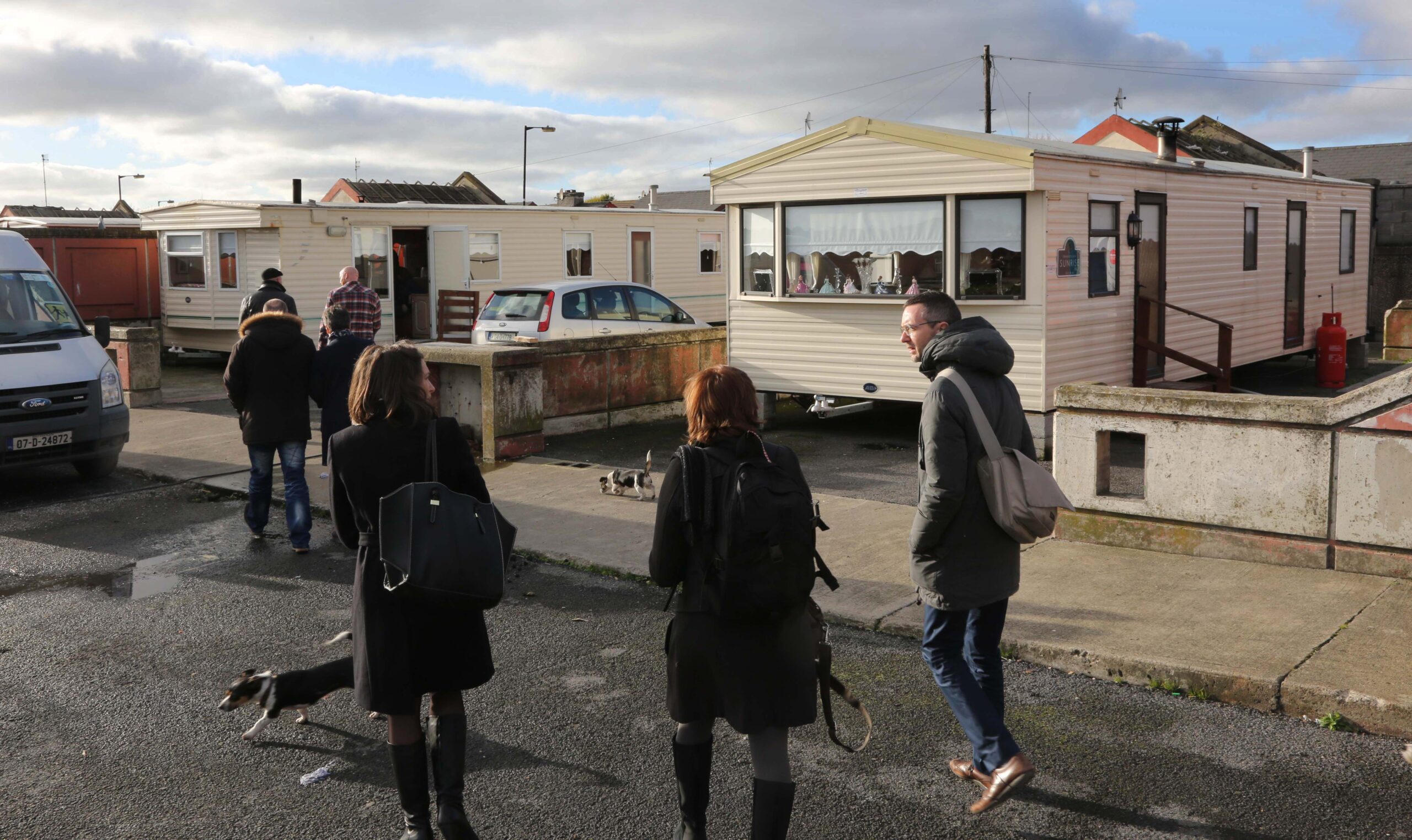IHREC publishes accounts of seven local authority Equality Action Plans that address issues arising in the provision of Traveller accommodation
Today, 26th June, 2024, the Irish Human Rights and Equality Commission published accounts of seven local authority Equality Action Plans that address issues arising in the provision of Traveller accommodation and services. The accounts of the Equality Action Plans were published alongside the Commission’s Annual Report, amid a warning from the Commission that considerable challenges remain for Travellers seeking to access accommodation services from their local authorities.
These seven local authorities, South Dublin (SDCC), Limerick City and County (LCC), Tipperary (TCC), Donegal (DCC), Mayo (MCC), Cork City (CCC) and Wicklow (WCC), now have prepared specific practical plans, together with follow-up recommendations from the Commission, to take action and improve provision of Traveller accommodation and services.
The accounts published today show how intransient the barriers are for Travellers seeking to access accommodation services from their local authorities. Some of these barriers include:
- evidence of poor consultation processes and lack of meaningful engagement with Travellers and Traveller representative groups across some of the local authorities; ongoing issues with accessibility of services including homeless services; misunderstanding of and poor communication on the ethnic self-identifier in social housing application forms in use by local authorities;
- lack of accessibility and suitability of the Caravan Loan Scheme;
- overall shortcomings and blockages in the delivery of Traveller-specific accommodation.
Overall, with the exception of two of the plans, the Commission identified shortcomings in the implementation and oversight mechanisms included in the plans.
- Funding of the plans was not addressed in several.
- Some of the plans included a continuation of existing actions rather than including new actions responding to issues raised in the Equality Reviews and as identified in consultation with stakeholders.
- The inconsistent methods of collating and using data and providing financial information on Traveller accommodation is also evident in the accounts of the plans. There were also mixed responses on the provision of transient sites to Travellers.
There were some positives. Some of the plans made positive commitments to support events celebrating Traveller culture and promoting inclusive communities. One plan clearly evidenced pro-active consultation with relevant stakeholders in its preparation of the plan and presented the plan in a manner which clearly responded to the feedback by identifying the issue and setting out a related action. The same plan identified a specific staff member with responsibility for overseeing implementation of the plan.
You can read more: https://www.ihrec.ie/commission-publish-equality-action-plans-from-seven-local-authorities-on-traveller-accommodation/
Speaking about the publication of the action plans, Martin Collins, Pavee Point Traveller and Roma Centre Co-Director, said,
“Pavee Point Traveller and Roma Centre welcomes the detailed work done by IHREC to produce the published accounts of seven local authority Equality Action Plans that address issues arising in the provision of Traveller accommodation and services. There are several positive facets in the plans, namely commitments to support and celebrate Traveller culture, and innovative solutions devised to improve accommodation and access to accommodation for Travellers. However, challenges remain. Several of the plans have ambiguous timelines, lack specificity, and do not include stakeholder engagement at the frequency they should; this must be rectified. Local Authorities currently do not prioritise Traveller-specific accommodation and some have failed to adequately deliver on the Caravan Loan Scheme. Local Authorities frequently do not draw down funding for Traveller-specific accommodation, nor do they enact emergency powers which allow them to “bypass problems with decision-making by elected members regarding Traveller Accommodation”– Section 24 of the Housing (Traveller Accommodation Act 1998)– despite being encouraged to do so in Dublin by the Department of Housing. These powers would enable Local Authorities to carry out works needed to provide a reasonable standard of accommodation, in an emergency situation. The lack of culturally-specific and decent accommodation for Travellers is having a profound effect on the community. Travellers only make up 1% of the population but data indicates 39% of Travellers meet the European definition of homelessness (Joint Alternative Report by a Coalition of Traveller and Roma Organisations January 2024).
Pavee Point calls for the introduction of ethnic equality data collection within a human rights framework. At the moment on the Social Housing Needs Assessment, there is a Traveller-only question, which is not in compliance with international best practice. This data collected by Local Authorities is not being used adequately in decision making regarding Traveller accommodation, as noted by IHREC’s reports. Pavee Point believes it is crucial a Traveller Accommodation Agency is established to implement Traveller accommodation programmes and also the full implementation of the recommendations of the independent Expert Review Group on Traveller Accommodation published in 2019. This group could also oversee the enactment of Local Authority Equality Action Plans and ensure that Local Authorities are committing to their promises. “
Access the Equality Action Plans through these links:

